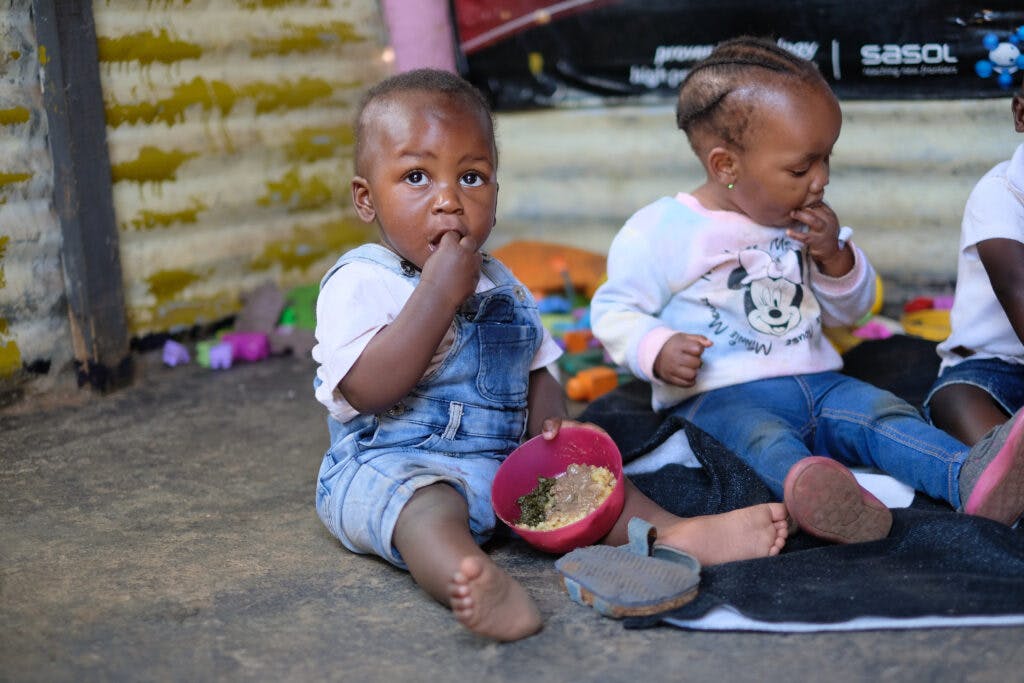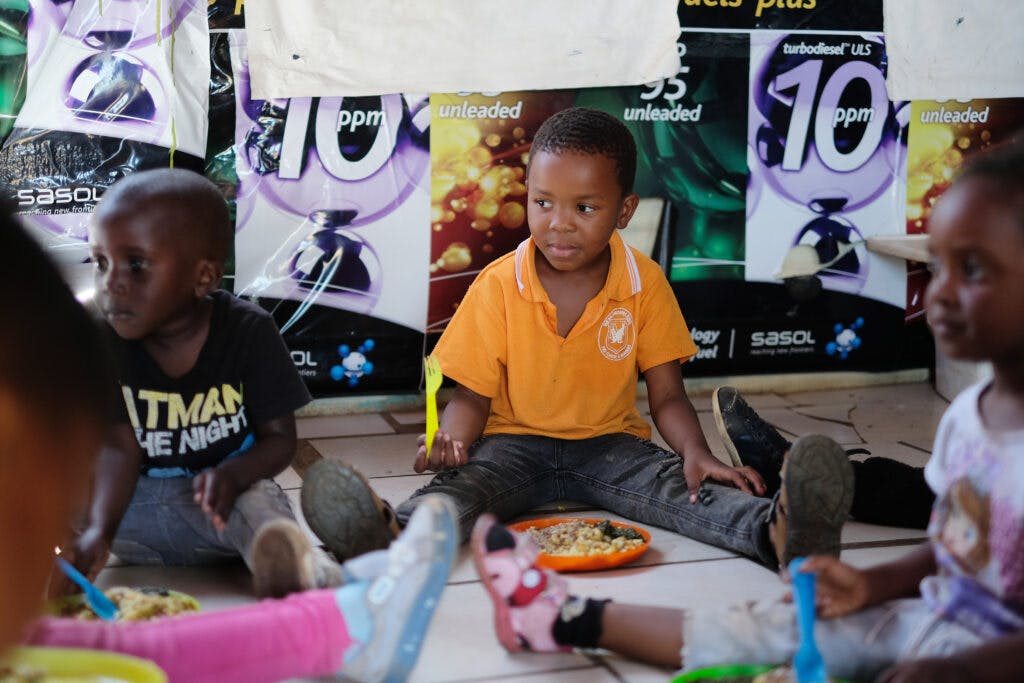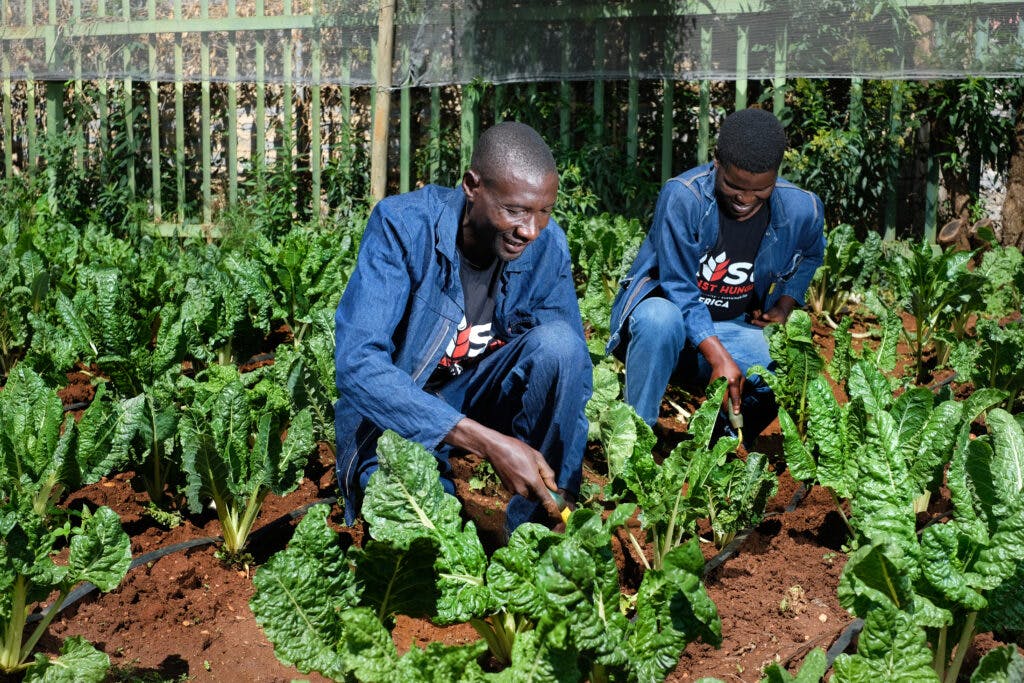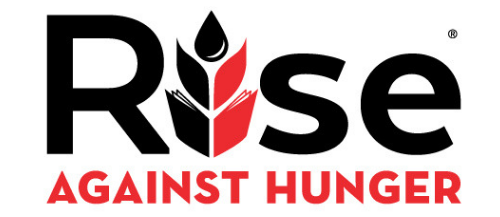Littlest Ones: Early Childhood Nutrition and Community Empowerment in South Africa

Since 1998, Rise Against Hunger has expanded to include international offices in the United States, India, Italy, Malaysia, Philippines, Singapore and South Africa, with all of the offices working toward the common goal of a world without hunger. As Rise Against Hunger celebrates 25 years of commitment to this mission, we are highlighting stories of real impact this year from one of our six international offices: Rise Against Hunger Africa. We’re kicking off this story series today — with so much more to come over the next few months. Read below about how Rise Against Hunger Africa is working tirelessly to support children’s nutrition and education in South Africa!
Food Insecurity Rates in South Africa
Approximately 20% of South Africa’s population faces moderate or severe food insecurity. In addition, food insecurity negatively impacts the health of a significant percentage of South African children. In the FAO’s State of Food Security and Nutrition in the World 2023 report, it was estimated that 22.8% of children under the age of 5 in South Africa were affected by stunting (when a child is low height for their age primarily due to poor nutrition) in 2022, and 3.8% were experiencing wasting (which is low weight-for-height).
To combat these statistics, addressing food insecurity and hunger in South Africa, especially hunger in young children, are very important. Rise Against Hunger Africa works to address the critical issue of hunger among young children through the Early Childhood Development Connect program (or ECD Connect). One of Rise Against Hunger Africa’s core programs, it focuses on ensuring South African children between the ages of 0 and 6 have access to quality education and nutritious meals.
How Rise Against Hunger Africa Supports Children’s Nutrition and Education Through Early Childhood Development Centers
Early childhood development centers (ECDs) in South Africa support children’s physical, mental and emotional development. Rise Against Hunger Africa assists the ECDs by providing Rise Against Hunger meals.
The benefits of the donated meals are twofold. First, adequate nutrition is crucial for early childhood development. The Rise Against Hunger meals provided to the young students ensure they have the nutrition needed for their health.

Second, the nutritious meals generate cost savings for the ECDs. When the centers don’t have to pay out of pocket for food for the children, they are able to put the money saved into improving the school’s infrastructure. This enables them to work toward higher levels of certification to meet the Department of Basic Education standards and obtain proper registration. These standards and registration help the centers receive support from the government, which in turn helps improve resources. Improved resources strengthen the academic opportunities for the children, supporting their education.

Creating Impact With Garden Projects and Community Programs
Rise Against Hunger Africa’s work to support the nutritional needs of South African children and communities extends beyond providing meals. Community programs and home-grown school garden projects are also implemented to further support the early childhood development centers and address a multitude of needs for the surrounding communities.
Working alongside the local community, school gardens are established to provide fresh vegetables and fruits to the early childhood development centers and to the community. These fruits and vegetables complement the distributed Rise Against Hunger meals, improving the participants’ quality of life and supporting long-term food security. The community programs and garden projects supported by Rise Against Hunger Africa also create new jobs and skills development opportunities, particularly for women in the community.

Place of Hope, an ECD in Gauteng, is a prime example of how these gardens enhance children’s nutrition and education. Place of Hope has established a vegetable garden and has 300 laying hens. Half of the produce is able to not only feed Place of Hope’s children, but also children at six other ECDs. Additionally, the other half of the produce is sold to generate income to sustain the school’s operations.
The Results (So Far)
The facets of the Early Childhood Development Connect program — both providing meals and implementing community projects — create a positive ripple effect for the children and communities served. In the past year alone, over 1,180 ECDs were supported, 38,100+ people were served and more than 2.9 million meals were provided. These figures led to outstanding outcomes. The donated meals not only support children’s nutritional needs, but also their education by assisting ECDs with infrastructure improvements and educational resources needed for higher certification levels. The community projects develop long-term food security, generate income for the ECDs and introduce new jobs for the broader community.
Learn more about the project in the video above. As Rise Against Hunger celebrates 25 years of impact this year, stories like this show what we know to be true: real solutions to end hunger do exist. Rise Against Hunger Africa’s ECD Connect program shows the importance of addressing hunger. A meal can lead to resilience and bright futures for the children and families served through the ECDs in South Africa — and for the people served around the world by Rise Against Hunger and our international offices.
This impact starts with a meal — and it starts with you. In celebration of Rise Against Hunger’s 25 years of global impact, please consider making a monthly donation of $25 (or a gift of any size) to pave the way for bright futures in South Africa and around the world.

